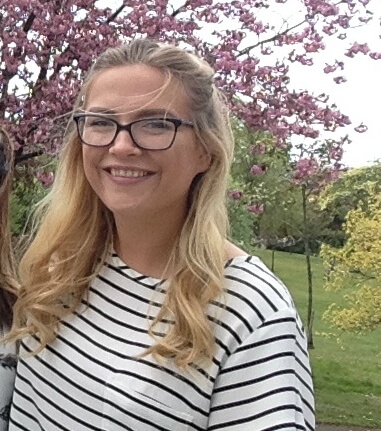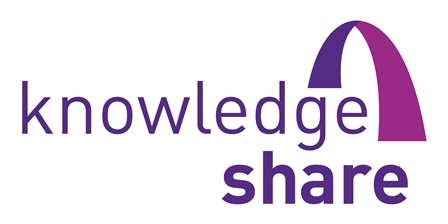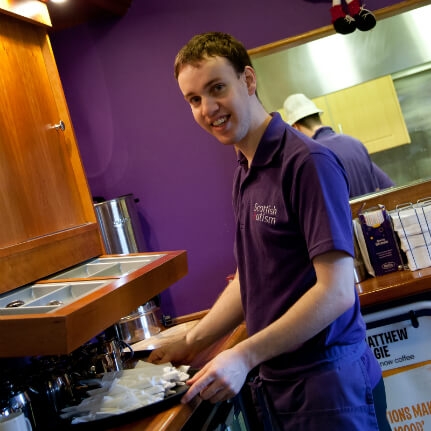A shared commitment and vision: facilitating the Fife service user forum
Shauna Donaldson, Autism Practitioner, Scottish Autism
The service user forum in Scottish Autism’s Fife services aims to promote, support and empower service users to use their voice. Participating in the forum enables the individuals we support to speak up for themselves, and provides an opportunity to gain more control over their lives.
As practitioners and supported individuals work together we can look at what is working well and the ways in which any improvements can be made to the delivery and quality of autism support services. Empowering the individuals we support to speak about their thoughts and experiences allows us to provide a person-centred service and address the relevant issues which reflect the views, needs and preferences of supported individuals. The involvement of those we support can provide insights that prompt practitioners to re-evaluate their work, challenge traditional assumptions, and highlight key priorities that supported individuals would like to see addressed. Through this partnership working, different views of problems can be identified which can lead to imaginative, innovative and meaningful solutions.
Research shows that social networks are good for physical and emotional wellbeing. Identifying with groups in a meaningful way can improve our self-esteem and pride. The notion of belonging, or social identity, is a central aspect of how we define who we are and is a fundamental aspect of what it is to be human. Involvement within forums is therefore as much about being respected and accepted as a valued group member as it is about addressing the issues at hand: user involvement can be therapeutic as well as instrumental. Helping to shape services, particularly when supported people work together collectively, can help to increase confidence, raise self-esteem and develop new skills. Here we share a few of the ways in which members in Fife have arrived at an inclusive and respectful approach to the forum.
The ‘comfort agreement’
The service user forum is a safe space for individuals to discuss personal thoughts and experiences free of fear or prejudice and so it is important for the group to understand confidentiality and to respect others. This is why we implemented the ‘comfort agreement’ as a support tool that promotes safety, supports the group’s overall goals, and identifies rules of etiquette such as courtesy and respect for others. This agreement was created by the members, who determined the rules and etiquette that forum members can follow to ensure everyone feels safe and respected in the group. Having a ‘comfort agreement’ highlights what is expected of everyone at the meeting and gives a sense of unity and mutual respect.
Potential discussion topics
Discussion is encouraged to occur openly and organically, however when discussion was focused on particular topics, we found that we often gained more rich detail from members on their own thoughts and experiences. Initially the forum did not have firm structure, here discussion often veered into social affairs and members felt that they needed to remain closer to the forum’s goals of service improvement. One thing we found to be important was to ensure discussions did not become too structured. Our experience taught us that reaching a balance between structure and direction and remaining flexible became essential to making discussions effective.
The peak and pit system
When the forum was first launched it felt as though discussion focused too much on the things members of the forum did not like about their service. Although this information is useful, and was not discouraged, it is also important to know what works so that practitioners can continue to facilitate the things that members of the group enjoy about their service and have a positive impact on their lives. Having successfully used this system in previous group settings, we implemented the ‘peak and pit’ system in order to consider things that are working well and areas where improvements can be made and discussed. This system encourages each individual in the group to share with the group something positive that has happened since the last forum and something that has recently been challenging or difficult. We found that sharing these experiences, opened discussion for other members of the group to share similar experiences. Hearing from others who are contending with the same adversity and making progress in their lives is inspiring and encouraging to members, and from this structured starting point organic discussion can occur.
Roles and responsibilities
Individuals who belong to the forum are supported to take ownership of the meetings. Having particular roles and responsibilities facilitates this sense of ownership and can increase self-esteem and pride among group members. Members report that taking leadership roles helps them feel more committed and invested in the group and it is important that practitioners make sure members know their help is appreciated. Roles such as minute taking, chairing the meeting, providing refreshments, and creating a newsletter are all taken on by forum members. The service user forum also takes an active role in fundraising to promote and support various Scottish Autism activities and initiatives such as an annual camping trip. The forum’s fundraising efforts increase opportunities to engage with the wider community, and host events that are meaningful and exciting to members.
Contributions and outcomes
The forum has had many successful outcomes from our discussions. When discussing the Scottish Government’s Keys to Life strategy the group learned more about their rights and responsibilities as members of their communities. Consequently, members of the forum expressed interest in learning more about the emergency services. Some members expressed feeling unsure of police presence and of when something would be classed as an emergency or not. One member of the group volunteered to write a letter inviting the emergency services to come and speak to the forum. Consequently, Police Scotland is now scheduled to speak to the group about personal and home safety and inform them about what a local police officer’s role entails. In response to discussing the Association for Real Change’s Charter for Involvement, members expressed an interest in taking a greater role in staff recruitment and have subsequently attended Scottish Autism’s recruitment evenings and reviewed the staff profile tool. This has allowed work examining individual member’s preferences for new staff who may work within their service. The group also felt that asking autism specific questions to potential new employees is really important, suggesting that questions such as, “what is your knowledge of autism and women with autism?”, “what experience could you bring to our service?” and “would you treat everyone individually?” be added to the local interview process.
When asked for reflections for this article the group were very positive about the forum. One member expressed feeling safe, “because of the ‘comfort agreement’” whilst the group felt they could share anything about their service whether that be positive or negative. The group liked that the forum was an opportunity for staff and other supported individuals to come together to talk about a variety of things that were important to their lives saying, “we can talk about everything”.
Resources and Links





